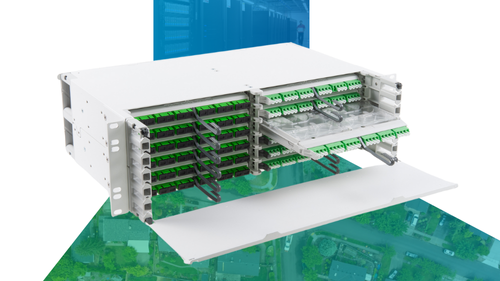The multi-dwelling unit (MDU) sector is thriving, with new apartment complexes springing up all over the place. We use the term MDU to refer to multi-household living situations. This includes not only apartment complexes, but also college dormitories, senior living communities, RV parks, marinas and more—anywhere people live communally.
From my home in Santa Clara, I frequently drive or ride my bike past large, modern apartment complexes. Santa Clara, as you may know, is on the southern end of the Silicon Valley corridor. It’s also home to the San Francisco 49ers of American football. Builders are erecting more of these complexes in my area all the time. Many of these properties are very impressive, and they command premium rents. When I pass by, I always think to myself, “I’ll bet they have enterprise-grade Wi-Fi there. I wonder if it’s a RUCKUS® network?” Increasingly in MDU properties worldwide, it is.
MDU properties these days frequently choose a managed enterprise-grade Wi-Fi deployment over the traditional “bring your own service” approach. AVE Union, a luxury residential community in Union, New Jersey, is a prime example. This Ruckus Networks customer is featured in a new customer case study. In this blog, I’ll take you through some of the highlights. The exceptional wireless connectivity experience at AVE Union helps the property differentiate itself from the competition.
AVE Union chooses a RUCKUS network managed by managed service provider Intello
AVE Union is a 300,000-square-foot property featuring 226 units that are rented both short-term and long-term. You can get an idea of how luxurious the complex is by checking out the gallery on the AVE Union website. It’s easy to understand why the residents here would expect great Wi-Fi.
AVE Union surveyed residents and determined that residents found the wireless connectivity experience at the complex to be lacking. In consultation with DBL, a Ruckus Networks partner, they chose a RUCKUS network managed by Intello by TELUS Business. Intello is a managed service provider that manages the network for AVE Union 24x7x365. DBL also installed the hardware onsite for the customer.
The deployment includes ICX switching, RUCKUS APs and virtual SmartZone™ for control and management. The SmartZone instance is hosted by a leading cloud services provider. It also includes Cloudpath® Enrollment System, which, as it turns out, is pivotal to the value derived by the property and its residents. Intello hosts Cloudpath software in its data center and delivers it as a cloud service to AVE Union. Cloudpath helps make sure that residents connect to the network quickly, easily and securely.
Superior user experience with enterprise-grade Wi-Fi and network segmentation
One of the benefits that AVE Union realized by choosing a RUCKUS network—and one reason so many MDU properties are opting for this approach—is that access points are optimally placed within the property based on an enterprise channel plan. AVE Union has access points in each of its 226 units, plus eight in common areas. This prevents interference issues from degrading Wi-Fi performance and helps deliver a great connectivity experience for residents.
Prior to deploying the new RUCKUS network, AVE Union residents had consumer-grade Wi-Fi. With consumer-grade Wi-Fi, residents lost connectivity when out of range of their units. With an enterprise-grade network from Ruckus Networks, AVE Union residents stay connected to their own virtualized personal network as they roam about the property – whether at the pool, the gym, or anywhere else they go on the property. Cloudpath Enrollment System helps enable this capability using VLANs, or virtualized local area networks. Each resident gets what looks and behaves like their own personal network. They see only their own devices and not those that belong to their neighbors. It’s one physical network but with the use of VLANs, it’s a separate virtual network for each resident.
The industry term for this is network segmentation—which is simply the practice of dividing an enterprise network into multiple smaller networks. Think of each VLAN as a separate network segment, superimposed over a single, property-wide physical network. Network segmentation helps keep IT security threats from propagating horizontally within the network because users and devices are separated from each other. While this benefit is not called out in the case study, it’s one reason that many organizations —whether or not they are MDUs—segment their networks.
Open APIs allow easy integration with the Intello MDU resident portal
The AVE Union deployment also benefits from the Cloudpath resident portal. This allows residents to self-serve in managing their connectivity. They receive their unique Wi-Fi password by email or text and simply enter it into each device they want to connect to the network. This uses a Ruckus Networks-patented technology called Dynamic PSK™, or DPSK. It’s similar to a conventional pre-shared key that you would use to connect to consumer-grade Wi-Fi, except each resident gets a unique key. This is much better than conventional PSKs both in terms of security and user experience.
DPSKs make sense in a lot of use cases. Traditionally they supported the guest user use case, but in the MDU sector, they are great for internal users (residents) too. They provide an alternative to digital certificates, with similar security benefits. Especially since many devices that MDU residents want to connect to the network don’t accept certificates, DPSKs make a lot of sense in MDU properties.
Cloudpath integrates closely via API with the Intello MDU resident portal in such a way that residents are not even aware that they are interacting with Cloudpath. Once they move from the Intello portal to the Cloudpath resident portal, they can self-serve to view their Wi-Fi password, change it and grant guest access to their visitors. Cloudpath also includes a management portal to allow administrators to provision units for network access, but at AVE Union, this functionality is handled within the Intello portal. The Cloudpath service (also available as on-premises software) provides a lot of flexibility to tailor an approach that fits the needs of every customer.
Conclusion
It may seem as if I’ve told you the whole story of AVE Union in this blog post, but if you read the case study, you’ll see that there is more to the story. Ruckus Networks has a wide variety of excellent customer case studies, and this one ranks up there with the best of the best.















